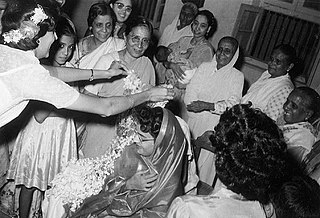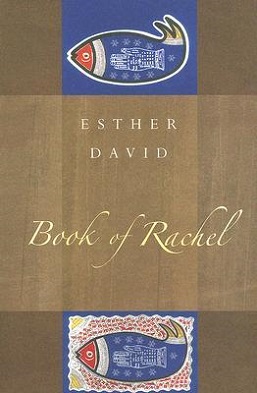Related Research Articles

The Bene Israel, also referred to as the "Shanivar Teli" or "Native Jew" caste, are a community of Jews in India. It has been suggested that they are the descendants of one of the Ten Lost Tribes via their ancestors who had settled there centuries ago. Starting in the second half of the 18th century, after they were taught about normative Sephardi Judaism, they migrated from villages in the Konkan region where they had previously lived to nearby cities throughout British India—primarily to Mumbai where their first synagogue opened in 1796 but also to Pune, Ahmedabad, and Karachi, where they gained prominent positions within the British colonial government and the Indian Army.

Cochin Jews are the oldest group of Jews in India, with roots that are claimed to date back to the time of King Solomon. The Cochin Jews settled in the Kingdom of Cochin in South India, now part of the state of Kerala. As early as the 12th century, mention is made of the Jews in southern India by Benjamin of Tudela. They are known to have developed Judeo-Malayalam, a dialect of Malayalam language.
Jehuda Reinharz served as President of Brandeis University from 1994–2010. He is currently the Richard Koret Professor of Modern Jewish History and Director of the Tauber Institute for the Study of European Jewry at Brandeis. He is also the president and CEO of the Jack, Joseph and Morton Mandel Foundation. On September 25, 2009, Reinharz announced his retirement as President of Brandeis, but at the request of the Board of Trustees, he stayed on until a replacement could be hired. On January 1, 2011, Reinharz became president and CEO of the Jack, Joseph, and Morton Mandel Foundation.

Hadassah, The Women's Zionist Organization of America is an American Jewish volunteer women's organization. Founded in 1912 by Henrietta Szold, it is one of the largest international Jewish organizations, with nearly 300,000 members in the United States. Hadassah fundraises for community programs and health initiatives in Israel, including the Hadassah Medical Organization, two leading research hospitals in Jerusalem. In the US, the organization advocates on behalf of women's rights, religious autonomy and US–Israel diplomacy. In Israel, Hadassah supports health education and research, women's initiatives, schools and programs for underprivileged youth.
The history of the Jews in India dates back to antiquity. Judaism was one of the first foreign religions to arrive in the Indian subcontinent in recorded history. Desi Jews are a small religious minority who have lived in the region since ancient times. They were able to survive for centuries despite persecution and antisemitic inquisitions.

Ghulam Mohammed Sheikh is a painter, poet and art critic from Gujarat, India. He was awarded the Padma Shri in 1983 and Padmabhushan in 2014 for his contribution in field of art.

Since the 1990s, the Republic of India and the State of Israel have had a comprehensive economic, military, and political relationship. In 1947, India voted against the United Nations Partition Plan for Palestine, but nonetheless recognized Israeli sovereignty in 1950. Israel opened a consulate in Bombay in 1953. Collaboration gradually increased as Israel became a key Indian ally amidst the India–Pakistan conflict; Israel supplied India with armaments, ammunition, and intelligence during the Indo-Pakistani War of 1971 and the Indo-Pakistani War of 1999. Full diplomatic relations were established in 1992, when India opened an embassy in Tel Aviv and Israel opened an embassy in New Delhi. Both countries are members of the I2U2 Group, formed in October 2021, and have stated that they have a strong bilateral relationship, sharing "similarities in spirit" and facing common challenges, increasingly cooperating in the industrial and technological sectors.

History of the Jews in Pakistan goes back to 1839 when Pakistan was part of British India. Various estimates suggest that there were about 1,000 to 2,500 Jews living in Karachi at the beginning of the 20th century, mostly comprising Iranian Jews and Bene Israel ; a substantial Jewish community lived in Rawalpindi, and a smaller community also lived in Peshawar.

There are many synagogues in India, although many no longer function as such and today vary in their levels of preservation. These buildings dating from the mid-sixteenth through the mid-20th century once served the country's three distinct Jewish groups—the ancient Cochin Jews, and Bene Israel communities as well as the more recent Baghdadi Jews.

Indian Jews in Israel are immigrants and descendants of the immigrants of the Indian Jewish communities, who now reside within the State of Israel. Indian Jews who live in Israel include thousands of Cochin Jews and Paradesi Jews of Kerala; thousands of Baghdadi Jews from Mumbai and Kolkata; tens of thousands from the Bene Israel of Maharashtra and other parts of British India and the Bnei Menashe of Manipur and Mizoram.

The history of the Jews in Mumbai, India, began when Jews started settling in Bombay during the first century, due to its economic opportunities. The Jewish community of Bombay consisted of the remnants of three distinct communities: the Bene Israeli Jews of Konkan, the Baghdadi Jews of Iraq, and the Cochin Jews of Malabar.

Dhirendra Pritamlal Mehta is a Gujarati novelist, poet, critic and editor who received the 2010 Sahitya Akademi Award for Gujarati language for his novel Chhavni.

The history of the Jews in Kolkata, formerly known as Calcutta, in India, began in the late eighteenth century when adventurous Baghdadi Jewish merchants originally from Aleppo and Baghdad chose to establish themselves permanently in the emerging capital of the British Raj. The community they founded became the hub of the Judeo-Arabic-speaking Baghdadi Jewish trading diaspora in Asia.
Shalva Weil is a senior researcher at The Seymour Fox School of Education at the Hebrew University of Jerusalem, Israel. In 2017, she was GIAN Distinguished Professor at Jawaharlal Nehru University, in New Delhi. She has researched Indian Jews, Ethiopian Jews, and the Ten Lost Tribes and specializes in femicide, qualitative methods, violence, ethnicity, education, religion, and migration.

Jews started settling in Bombay in the 2nd century. The Jewish community of Bombay consisted of three distant groups, the Bene Israeli Jews, the Baghdadi Jews, and the Cochin Jews.
Saryu Vinod Doshi is an Indian art scholar, art historian, academic and curator, known for her erudition in Indian miniature paintings and Jain art. She is the founder director of the National Gallery of Modern Art, Mumbai and a former pro-tem chairman of the Lalit Kala Akademi, New Delhi. She is the author of several books including Masterpieces of Jain Painting, a monograph on selected Jain art pieces. The Government of India awarded her the fourth highest civilian award of the Padma Shri, in 1999.

Ramnarayan Vishwanath Pathak was a Gujarati poet and writer from India. Profoundly influenced by Gandhian thought, Pathak wrote criticism, poetry, drama, metrics and short stories. He edited and translated literary works. He was appointed the president of Gujarati Sahitya Parishad in 1946. He was awarded the Gujarati literary prizes Narmad Suvarna Chandrak for Prachin Gujarati Chhando in 1949 and Sahitya Akademi Award for Bruhat Pingal in 1956.

Urmi Ghanshyam Desai is a Gujarati writer and linguist from Gujarat, India. She received the Sahitya Akademi Award in 2017 for her critical work Gujarati Vyakaran Na Baso Varsh.

Book of Rachel is a work of fiction authored by Esther David. The book won India's Sahitya Akademi Award in the year 2010.
References
- ↑ Weil, Shalva. 2008 'Esther David: The Bene Israel Novelist who Grew Up with a Tiger' in David Shulman and Shalva Weil (eds) Karmic Passages: Israeli Scholarship on India, New Delhi: Oxford University Press, pp. 232–253.
- ↑ Weil, Shalva. 2012 "The Bene Israel Indian Jewish Family in Transnational Context", Journal of Comparative Family Studies 43 (1): 71–80
- ↑ Paniker, Shruti (14 February 2016). "Come, visit my city". Ahmedabad Mirror. Retrieved 28 March 2016.
- 1 2 3 4 5 "City-based author wins Sahitya Akademi award". www.ndtv.com. 22 December 2010. Retrieved 6 October 2012.
- ↑ Roland, Joan. 2009. "The Contributions of the Jews of India" in (ed) Shalva Weil India's Jewish Heritage: Ritual, Art and Life-Cycle, Mumbai: Marg Publications [first published in 2002; 3rd edn.].
- 1 2 "My Father's Zoo | Esther David | ISBN".
- ↑ "Esther David Official". Archived from the original on 19 July 2012. Retrieved 5 October 2012.
- ↑ David, Esther. 2009. "Sari-Sutra: Bene Israel Costumes" in (ed) Shalva Weil India's Jewish Heritage: Ritual, Art and Life-Cycle, Mumbai: Marg Publications [first published in 2002; 3rd edn.].
- ↑ "Esther David, Ahmedabad in US calendar on Jewish women writers". The Times of India . 26 September 2010. Archived from the original on 3 January 2013. Retrieved 6 October 2012.
- 1 2 3 4 5 6 7 8 "Esther David Books". Archived from the original on 2 September 2013. Retrieved 5 October 2012. For a review, please refer to: Weil, Shalva. 2003 The Book of Esther by Esther David, reviewed in Biblio: A Review of Books, New Delhi: Manohar, p. 26.
- ↑ David, Esther (April 2009). Shalom India Housing Society. ISBN 9781558616455 . Retrieved 5 October 2012.
- ↑ David, Esther (June 2008). One Church, One All Jewish Faith, One God. ISBN 9781595269775 . Retrieved 5 October 2012.
- ↑ David, Esther (2010). The Man with Enormous Wings. ISBN 9780143066927 . Retrieved 5 October 2012.
- ↑ "Bombay Brides".
- ↑ Weil, Shalva. 2009 'The Heritage and Legacy of Indian Jews' in Shalva Weil (ed.) India's Jewish Heritage: Ritual, Art and Life-Cycle, Mumbai: Marg Publications [first published in 2002; 3rd edn.], pp. 8–21.
- ↑ "Historique des bénéficiaires". Bienvenue sur le site de la maison des écrivains et de la littérature.
- ↑ "Esther David". Meeting Saint Nazaire.
- ↑ "They are not on facebook". India Today. 14 January 2011. Retrieved 6 October 2012.
- ↑ "HBI Research Awards 2011" (PDF). Hadassah-Brandeis Institute.
- ↑ "HBI Research Awards 2016" (PDF). Hadassah-Brandeis Institute.